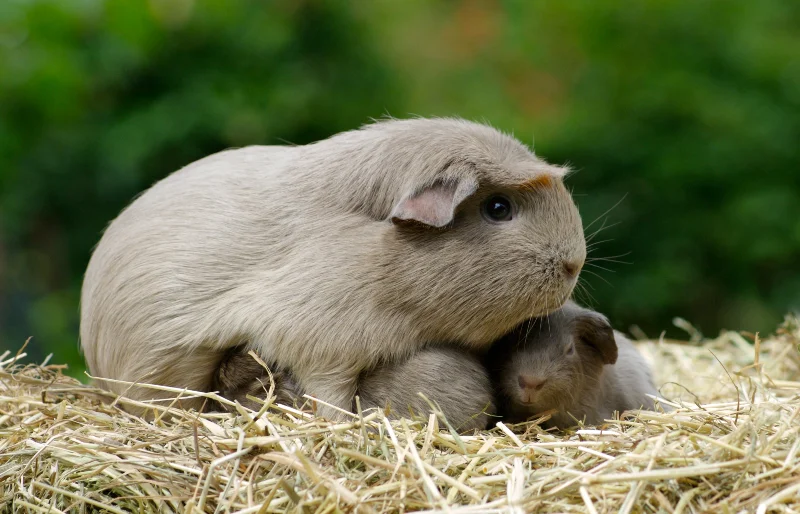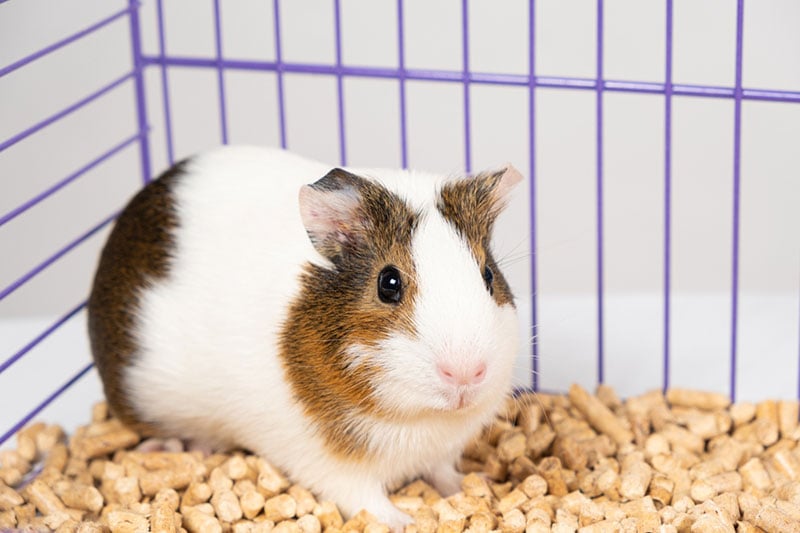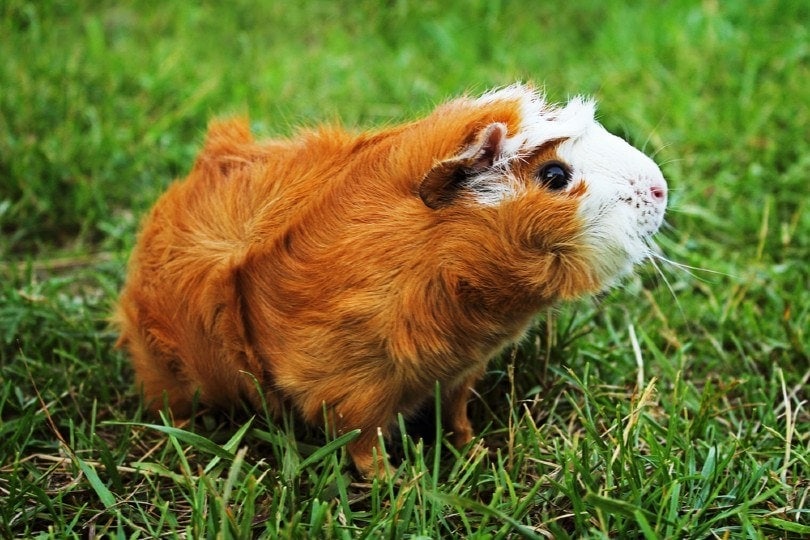Can Guinea Pigs Eat Carrots? Vet-Reviewed Nutrition Facts
Updated on
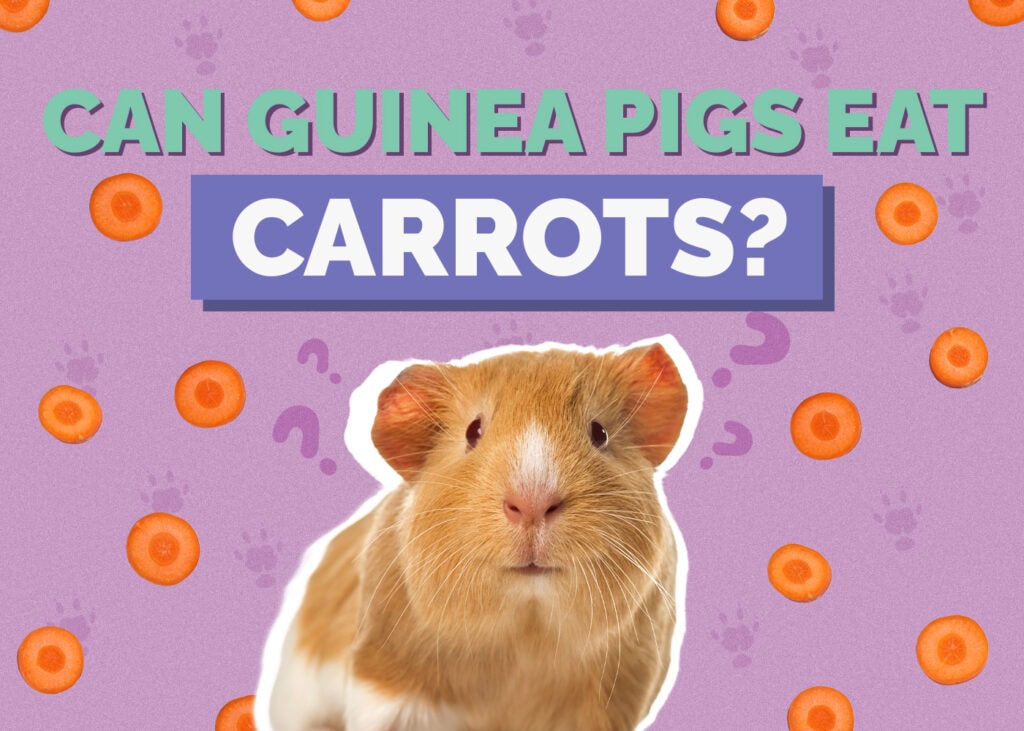
High quality low-calcium hay like Timothy Hay, should make up 85-90% of your guinea pigs’ diet. The remainder should consist of a handful of veg and around an egg cup full of pellets each day. Their teeth are open rooted and continuously growing, which helps them in the wild but can be a problem at home unless they’re provided with a way to keep them ground down. Carrots and other crunchy veggies can assist with your guinea pig’s dental hygiene, as well as supply them with a bounty of nutrients that are found in the root and the greens. So, yes, carrots are a really good veggie for your guinea pig!
Can Guinea Pigs Eat Carrots?
Packed with calcium, fiber, and vitamins A, C, and K, carrots are an excellent addition to your guinea’s meal. Carrots do contain sugar, so you’ll need to watch their portions. However, they probably won’t eat enough carrots for the relatively low amount of sugar to be a serious problem, and the nutrients far outweigh the risks. Never feed your guinea pig cooked carrots, however. Their tummies can’t process cooked or processed food, so they should only eat raw veggies. Here are some reasons you might want to add carrots to a guinea pig’s diet.
The 5 Reasons to Feed Carrots to Your Guinea Pig
1. Vitamin C
Like humans, guinea pigs are at risk of developing scurvy if their vitamin C levels dip too low. Primates and guinea pigs are unable to manufacture this crucial vitamin on their own, so it’s important to make sure their diet includes what they need. Scurvy manifests in brittle bones and a weakened immune system that’s susceptible to illness and infections. Carrots are an excellent vitamin C supplement that should reduce their risk of developing this disease and improve their overall health.
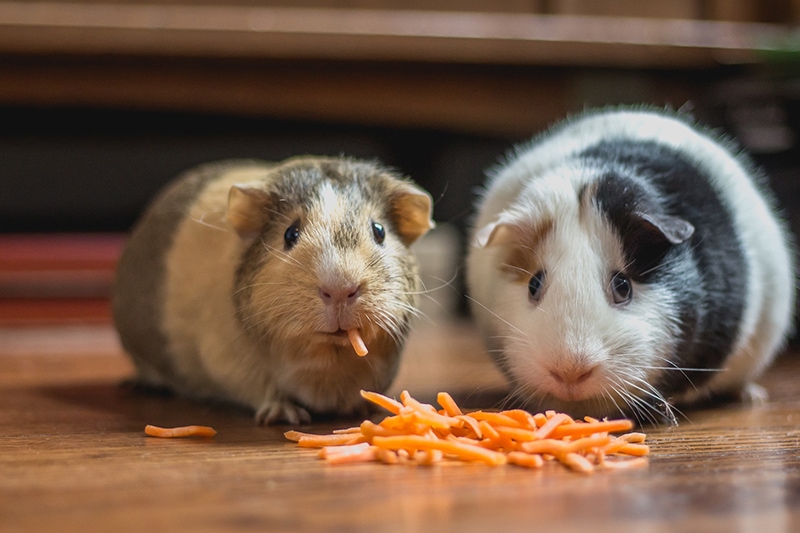
2. Fiber
Guinea pigs can benefit from roughage in their diet to promote a healthy gut. Fiber can help prevent constipation in your guinea pig by gently cleaning out their intestines and encouraging them to poop. It is also essential for maintaining a healthy gut biome and maintaining gut movement needed for passing food along.
3. Vitamin A
Remember hearing how carrots are good for your eyesight because they contain beta carotene? As it turns out, beta carotene only helps because it gets converted into vitamin A, which is the true aid for our eyesight. Humans primarily source this nutrient through meat. Guinea pigs, however, are herbivores, so they must receive vitamin A through a vegetarian diet. Leafy greens like carrot tops are a good source, although carrot tubers also contain vitamin A. You can also feed your guinea pig other leafy greens such as spinach and kale to supplement their vitamin A intake.
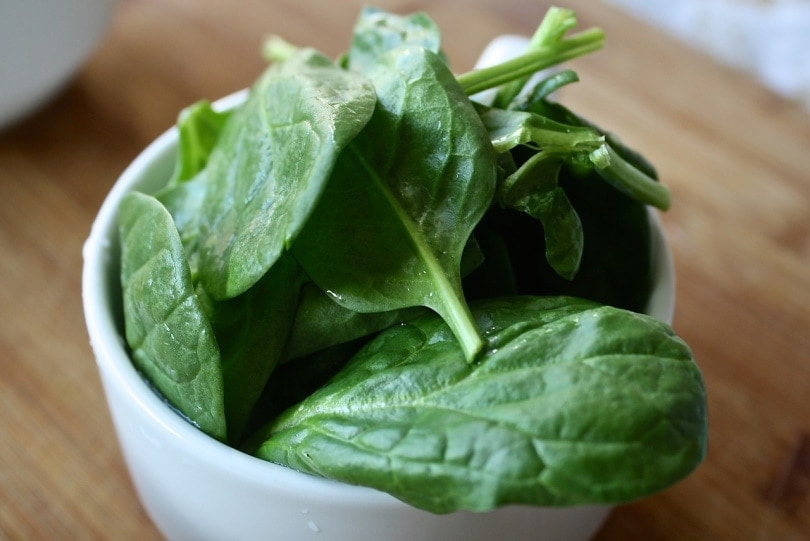
4. Vitamin K
Crucial for developing strong bones, vitamin K is usually sourced through foods like carrots, kale, and spinach. It also promotes healthy blood clotting. Although vitamin K deficiency is rare in guinea pigs, it’s still an important nutrient that should be considered.
5. Calcium
Like vitamin K, calcium helps your guinea pig build strong bones. While it’s a vital nutrient, you do need to be careful not to overdo it with their calcium intake since this can cause urinary stones. Check for calcium deposits in your piggy’s urine to determine if they might be receiving too much. These tiny, white sand-like granules can be painful to excrete if they become big enough and can be early warning signs of bladder stones.
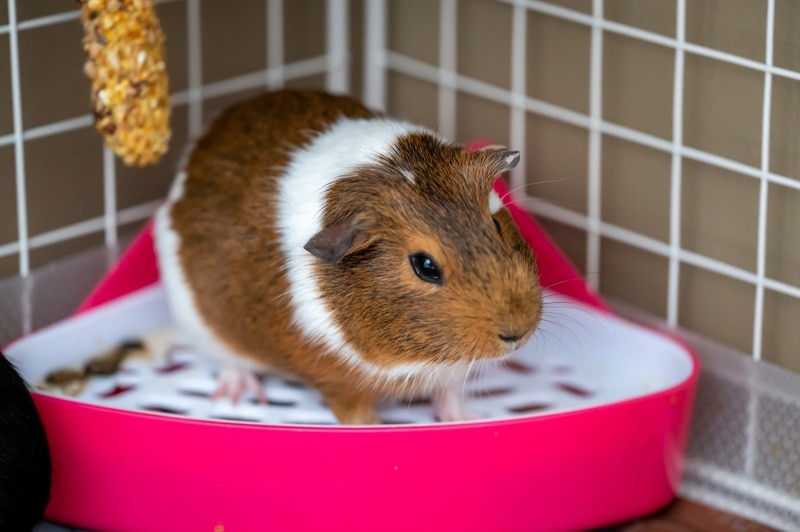
Creative Snack Ideas for Your Guinea Pig
In addition to their daily supply of hay, you might consider adding these fresh fruits and vegetables to their diet in moderation. Guinea pigs are creatures of habit that don’t adjust to diet changes easily, so you might want to start with only a nibble of a new food at first to ease the transition. Talk to your vet about how much to feed them since even healthy foods can cause dangerous weight gain in excessive amounts. Like carrots, make sure these veggies are always raw to avoid stomach upset.
Here are a few ideas of what you might include for starters:
- Spinach
- Cauliflower leaves and stalks
- Dandelion
- Cilantro
- Celery
- Freshly harvested grass that hasn’t been treated with pesticides
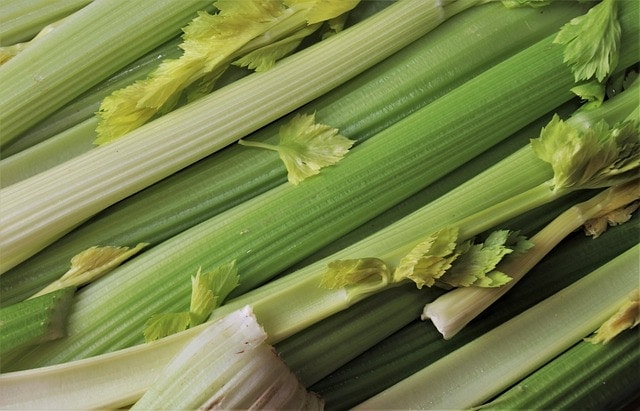
A Few Forbidden Snacks
Processed and cooked food is off-limits for your guinea pig. This includes things like cereal, cookies, and crackers. Most unhealthy foods are fairly self-explanatory since they contain high levels of sugar and starches. However, there are a few “healthy” foods that may catch you by surprise.
Even though they’re good for humans, you should never give these toxic foods to your guinea pig:
- Avocado
- Onion
- Leek
- Garlic
- Chocolate
- Corn
- Sweet peas
- Seeds
Unfortunately, this isn’t an exhaustive list. A good rule of thumb is, if it isn’t a raw leafy herb or vegetable, ask your veterinarian before giving it to your guinea pig. You should also try to source organic produce to avoid passing pesticides to your pet. While you can harvest freshly cut grass, never give your guinea pig grass near a highway or anywhere it might’ve been contaminated with fuel emissions or chemicals such as weed killer.
Conclusion
From top to bottom, raw carrots treat your guinea pig to a tasty snack they love. Before you toss the carrot greens into the compost, you should consider giving them to your guinea pig. Of course, you’ll need to make sure they’re thoroughly washed and preferably organic to reduce the chance of accidentally exposing your pig to pesticides. You should also make sure the produce isn’t moldy, since that can make them sick, and never feed your guinea pig cooked food. In short, raw carrots care for guinea pigs’ teeth and provide them with supplemental nutrients, which makes them a choice snack in moderation.
Related Read:
- Can Guinea Pigs Eat Green Beans? Vet-Approved Nutrition Facts
- Can Guinea Pigs Eat Celery? Vet-Approved Facts
Featured Image Credit: enchanted_fairy, Shutterstock


